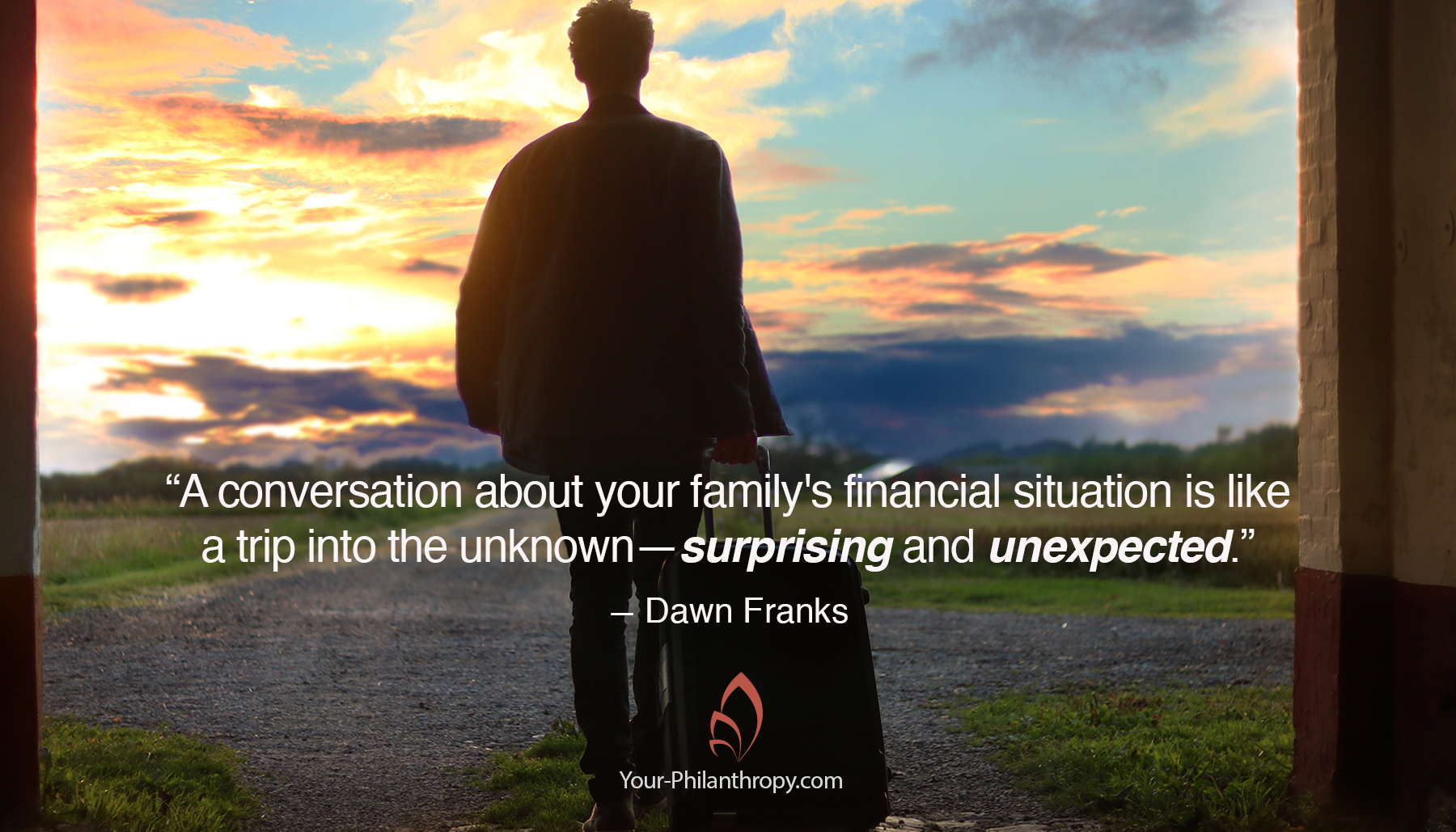A friend shared that he planned to have a conversation very soon with his wife about some of the finer details of their financial situation. He described it as getting a meeting on their calendar. The need for such an appointment came just weeks after several unexpected and sudden family losses. The reminder to keep family members updated about financial information comes to us at the worst times. And after the collective family dust settles, the need to schedule the family appointment is forgotten.
It’s hard to know how much is from forgetfulness. And then there are our fears about such conversations. Sometimes it’s leftover fears from past conversations that didn’t go well. Often the conversations are put off for another day. Then days pass to months and years.
Remember my friend and several unexpected, sudden losses? We’re all only one unknown day from the same loss.
And then the family is left to deal with our loss and the surprises and unexpected decisions we detailed in our will or estate plan.
A great deal of thought and time go into drawing up a will or having estate planning documents prepared. Then they are locked up, filed away or left with legal advisors to be explained when the time comes. That’s an obvious next step, but is it the best next step?
When I sit with families while they have some version of this conversation with a spouse and children, I witness firsthand the emotions of the moment. I watched as a daughter, named as the executor and already privy to the estate details, explain concerns to her dad as she imagined what her siblings would think of the decision to leave most of his estate to a college. The conversation did not change his decision, but it did put into motion plans for conversations with the other children so they would know what to expect.
I listened while parents explained to adult children, they had already received their inheritance and that the remainder would go to various charities. Some were surprised. Some were not. The conversation produced laughter, frustration, and disappointment. They now all understood what was coming and what was not.
Such conversations can be successful between only family members, or with a family friend, consultant, or legal advisor in the room. You can tip the scale toward success with a few tips.
Listen well.
Before you begin this conversation, outline important points. Leave the granular details to a future conversation. Invite your spouse or child to ask questions. Listen to the entire question before you begin your answer. Take ten to twenty seconds to think about the answer; then make it as short as possible. Let them direct the level of details needed right now. Several conversations may be better than just one.
Don’t try to have all the answers right now.
Your challenge is to provide answers to the questions they are asking. You may think of all kinds of details they need to know but aren’t yet seeking. Think of it as going on a long trip and unpacking your suitcase. Most of us unpack a little when we first arrive at the hotel and then keep unpacking as the days come and go. A conversation about your family’s financial situation is like a trip into the unknown—surprising and unexpected. Unpack as needed.
Keep Notes.
Make a point to write down their questions. First, it will help you provide better answers. Second, it will set a slower pace for the conversation, allowing everyone time to process the questions and the answers. After the conversation, the notes become a log that reveals how far you’ve come on the trip and helps you plan what’s next.
Consider writing the answers to questions no one got around to asking. I call it your legacy letter. Formal, or informal, it provides an opportunity to document your intentions, wishes, and hopes. “Write Your Story and Leave a Legacy” for future generations.
What if you’ve already started this trip and then decide you would like someone alongside to help keep the conversation on track, keep a record of the conversation and help everyone better understand your intentions, wishes, hopes, and future next steps? Check out the blog Five Tips for a Better Family Conversation to learn more about finding a professional or consultant to help you navigate the conversations.
Don’t wait to put this family appointment on the calendar. Tomorrow is no better than today, only different clothes. If it makes you nervous, contact me to talk about your family appointment.
Do you have a story to share? How can we learn from each other how to better prepare our families for these all-important next steps?
Like it? Use it. Share it. Comment below.


0 Comments